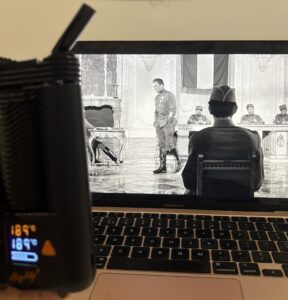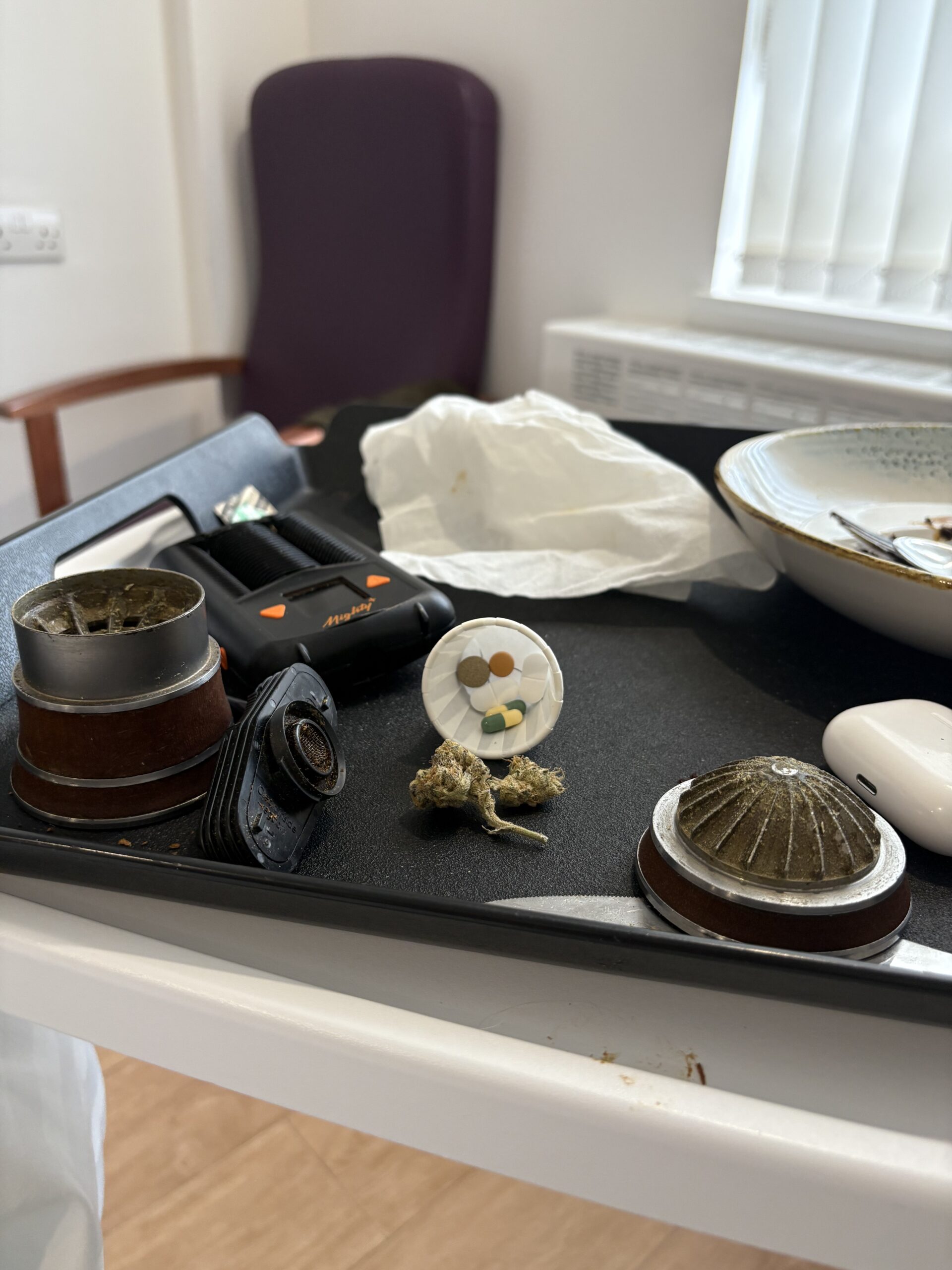A profound change is quietly occurring across the UK, writes James Smith, medical cannabis patient and co-founder of 4C Labs, following a recent experience using cannabis-based medicines to recover from major hip surgery on the NHS.
Disclaimer: I am not a doctor or a scientist, this story is not an official academic study, it has no clinical value and it is not a recommendation to any patient, it is simply my story and it is all true.
I am a medical cannabis patient, I have numerous chronic pain points and was diagnosed with ADD in the mid 1970s, at the age of seven. I am also one of the founders and the Chief Revenue Officer of 4C Labs, a UK medical cannabis company.
A week ago I had my left hip replaced.
Fortunately I have had six other sports injury related surgeries, four knee-related and two in the upper body region, all from skiing or mountain biking accidents. (Yes, I do have a problem, but it’s got to be better than jail or substance addictions.)
It is common practice to be prescribed opioids for pain management after surgery, but for my last three I have refused them, choosing instead to take CBPMs.
The first experiment I conducted on myself was when a cracked rib severed an artery and leaked around two litres of blood into my lungs after a terrible mountain bike smash in Canada. The second time was my most recent knee surgery at a private hospital in the UK. I was released the evening of the surgery, without a great deal of pain. The hip replacement, however, was going to be a bigger deal.
“The anaesthetist was truly amazed”
During the pre-op meeting at the hospital where the surgery was to take place, I informed the very nice NHS nurse that I would be bringing my medical cannabis in for pain management, which I am legally entitled to do, and that I would be vaporising in the room.
Surprisingly, I received no push back. She noted that she would need to get back to me, as this was her first experience with a medical cannabis patient. Four days later they asked me to email my prescription and all was fine with the hospital administration team.
When I arrived at the hospital for check-in, they took my meds and placed them in the safe, as they would with any controlled drug that a patient brings to the hospital.
When I met the anaesthetist beforehand, I explained my intention was not to not take any opioid-based medications, which he found somewhat amusing—I was the first patient he had encountered who had this pain management plan. He would prescribe tramadol and ibuprofen regardless, and it would be up to me, at the time of recommended dosing whether to take it or not.
When it was time for my first dose of pain management after surgery, I rejected the pills and was given 0.5 grams of my daytime flower. It is officially on my record. I felt fine and the pain was completely managed.

Vaping from my hospital bed.
The evening of my surgery, I vaped as needed, in my hospital bed. All of the nurses took an interest in the process, the look and smell of the flower, how the vaporiser worked, the amount consumed and the length of the efficacy. There was nothing but support and positive attitudes, not at all what I expected.
The next day the anaesthetist came to visit me and saw that I had taken none of the opioids. When he came into the room, I was on the phone working and had been sending emails all morning. My head was clear and we had a long conversation.
As this was the third time I had conducted this experiment on myself, I was not at all surprised by the results, but my anaesthetist was completely blown away. He could not believe that I was so clear headed, capable of work and without any acute pain.
Here was an expert in his field, whose mind had been genuinely opened. So much so, that he later shared an email that he sent to the hospital directors suggesting that this was a treatment form that they needed to discuss and consider.
It felt wonderful to be in the room with this doctor at that moment, his body language and intonation were authentic, he was truly amazed.

Hospital tray post-surgery
“A profound change is occurring”
In my mind, this is evidence of a profound change that is quietly occurring across the UK. Patients are forcing doctors to educate themselves on our choice of medicine and seeing the results, their minds are changing.
This was a unique experience compared to the others as I was allowed to vape in the room— a big no-no in Canada, where only edibles were permitted.
This was my first real experience of the NHS, and I cannot say whether or not I received the standard of care that all NHS patients receive. If it is, your system is far superior to ours in Canada.
I was completely impressed with every single person I interacted with, from the GP that referred me to the hip specialist, to every single person in the hospital, including the admin teams. Quite frankly it was the opposite narrative that the UK media seems to portray as the modern state of the NHS.
Every medical professional in this journey to a new hip was completely supportive, interested and open to the idea that this was how I was going to manage my pain and when they saw the real live results they were stunned.
I don’t believe that two of three years ago I would have had the same experience. I think we are making progress.
Working in this sector, in this market, is not easy. At times it feels as if the whole medical establishment is working to prevent the increased use of cannabis-based medicines. I no longer believe that. I believe that we are now in a moment where the establishment has no choice but to regard these medicines as legitimate solutions.
My hope is that the attitudes that I experienced were not unique to myself and that it was not all just dumb luck and running into the right people on my journey. Somehow I don’t think so.
The post Medical Cannabis Helped Me Recover from Major Surgery—and Opened Minds in the NHS appeared first on Cannabis Health News.
Go to Source
Author: Opinion editor

